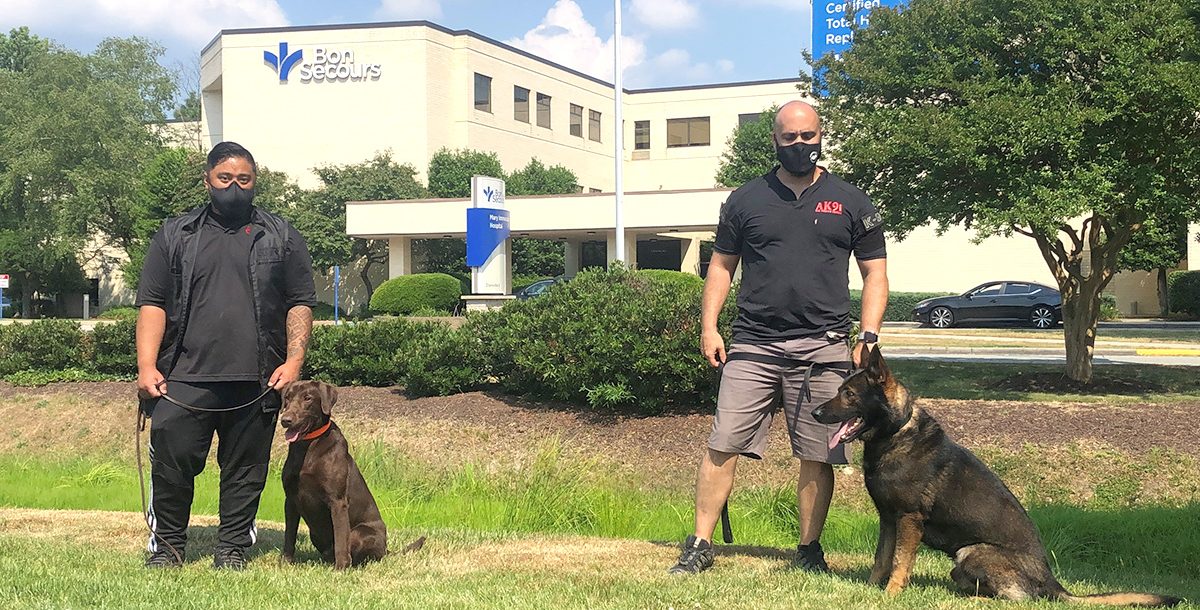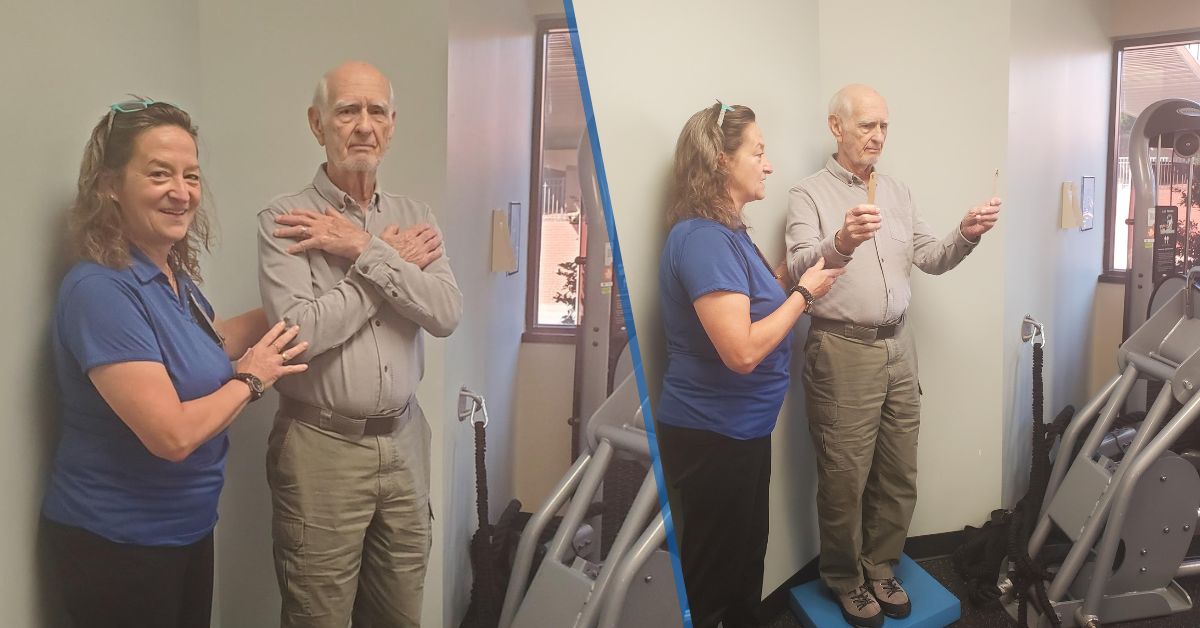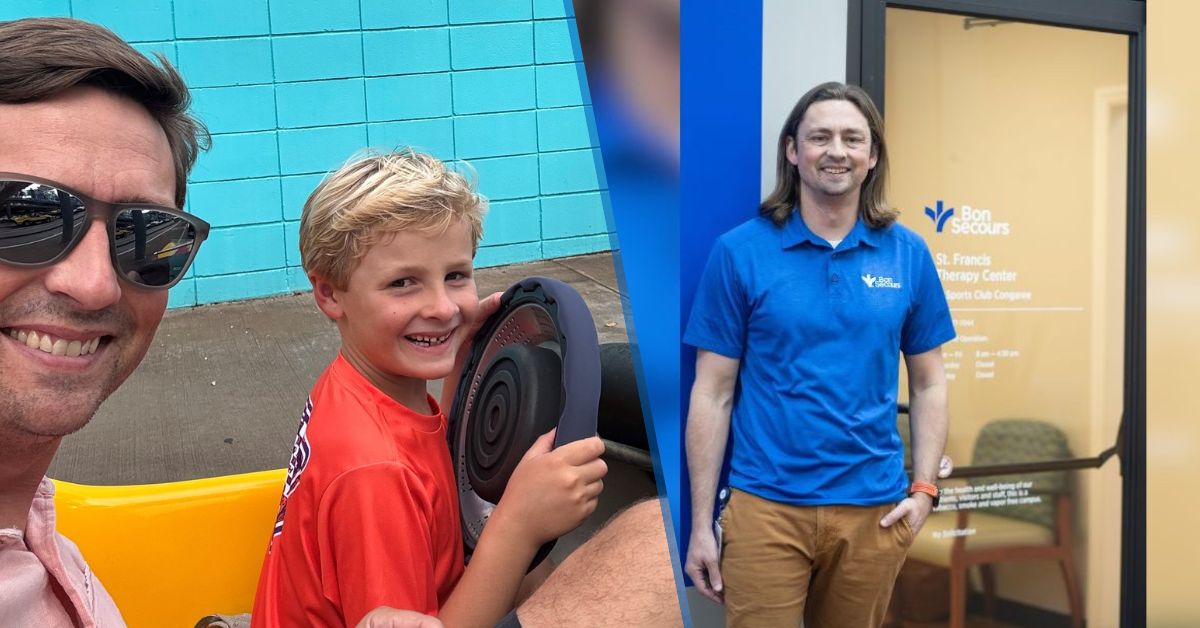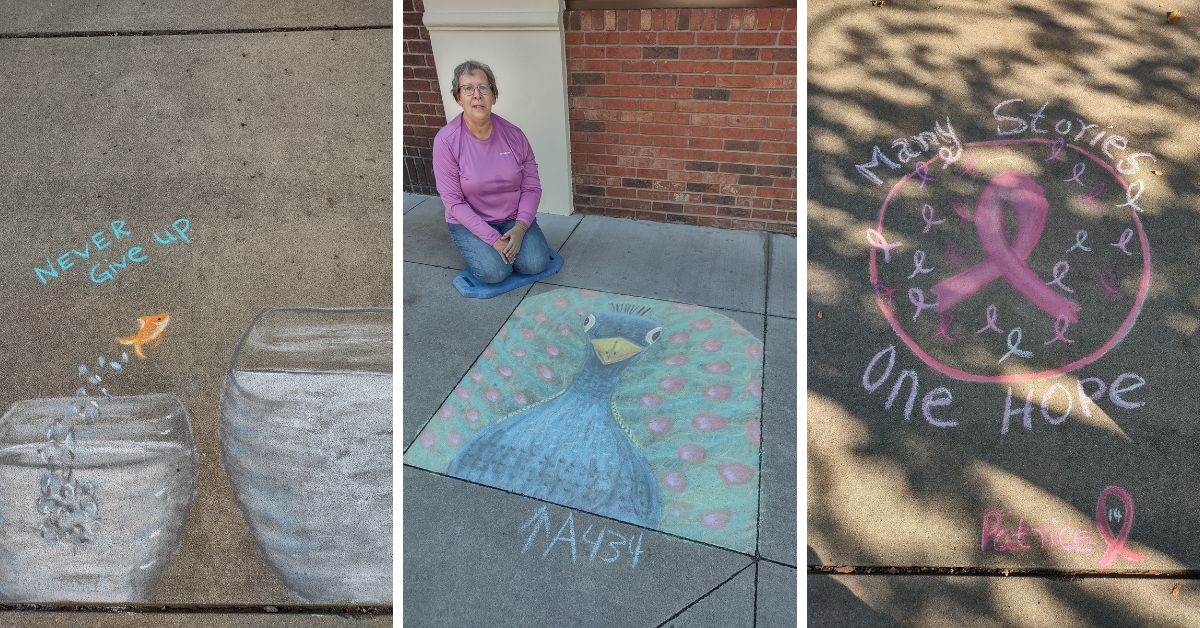Our furry, four-legged friends have always been more than just faithful companions. A dog’s keen senses can make them the perfect helper, whether using their sight to assist the blind or their superior sense of smell to find pretty much anything.
But what if dogs’ adorable noses could also detect COVID-19?
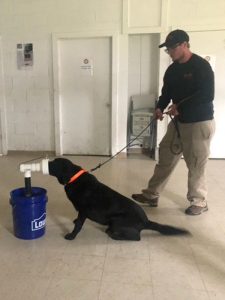
That is what we at Bon Secours are hoping to learn by entering into a partnership with American K-9 Interdiction (AK9I). For more than two decades, AK9I’s canines have been trained to discover everything from explosives to narcotics. But the COVID-19 pandemic presents a new challenge.
“The closest we’ve come to something like this is cancer detection,” James Overton, AK9I’s director of marketing and business development, shares. “The difference between cancer and a virus like this is molecular weight. So, the question becomes, will the molecular weight of COVID-19 be enough for the dogs to detect?”
To find out, we are allowing AK9I to have the dogs test samples at Southampton Medical Center, Mary Immaculate Hospital and Rappahannock General Hospital. In the first phase of the study, three dogs received “odor imprinting” at AK9I’s facility where these animals were trained to search for a neutral odor. In phase two, the dogs train on a target odor, in this case that of COVID-19.
From there, the dogs are brought onsite to one of our facilities. Having the dogs onsite ensures the COVID-19 samples are both fresh and properly disposed of following testing. Our patients have the opportunity to consent and allow their samples to be part of the study. No patient-identifying information is collected as well.
“All we need to know is whether a sample is positive or negative,” James says. “The VOC (volatile organic compounds) given off by the virus is not enough for the dog to detect on its own. However, COVID-19 infected individuals have a change in their body chemistry that changes their odor. We can train the dogs to detect the odor difference between a COVID-19 positive and non-positive person.”
At our hospitals the dogs are presented with a variety of samples, only one of which is COVID-19 positive. Trainers look for a change in the dog’s behavior (vigorous tail-wagging, breathing, etc.) to determine if the dog is selecting a sample. If the dog correctly identifies the positive sample, it receives its ball.
“It’s all about the ball for them,” James laughs. “We use the ball for everything.”
Early results from this study have been encouraging. In the first week at Mary Immaculate Hospital, the dogs correctly identified the COVID-19 positive sample every time. More testing is needed and eventually the study will move to its third and final phase where trainers are not told in advance whether a sample is positive or negative. This “double blind” testing ensures a trainer isn’t subconsciously misinterpreting a dog’s actions as selection of the positive sample or that the dogs are not responding to a trainer’s unintentional cues. Additionally, the trial will be thoroughly peer-reviewed.
“When I heard about the opportunity to be part of this project to learn if dogs are able to identity COVID-positive patients through smell, I was very intrigued from a science perspective,” says Jan Phillips, Mary Immaculate Hospital’s vice president of nursing.
Jan adds, “as a nurse, this type of project feeds caring, science and innovation, which are central to my profession.”
While he approaches these studies with a healthy skepticism, James has enough the experience with dogs to know we should never discount their amazing detection abilities.
“As humans, when we walk into a room, we’ll smell someone baking a cake. Whereas a dog will smell the flour, the sugar, every ingredient right down to the molecular level,” James explains. “If this study proves successful, it’s a game-changer for a lot of things.”
Applications for COVID-19 trained canines include deployment at sporting events, concert venues as well as cruise and airport terminals. While large crowds make sample collection and testing impractical, an appropriately trained dog could theoretically be used to identify someone in a high-density area via smell and that individual could then undergo a traditional COVID-19 test before potentially exposing others.
Most rapid antigen testing currently in use takes approximately 20 minutes per person. It takes less than two minutes for the dogs to “search” human samples, thus checking as many as 20 samples simultaneously.
Jan shares that the way this study has unfolded thus far makes her hopeful. She is very proud that our ministry is participating.
“As I learned more about the scope of the project and the potential outcomes if the dogs are successful, I became very excited about the impact this project may potentially have on communities returning to large gatherings and feeling safe.”
If trained dogs’ senses of smell help the world return to a semblance of normal, then they’ll be good boys and girls indeed.
Learn about the health care services we provide at Bon Secours.
Also, getting vaccinated for COVID-19 is the best way you can avoid severe illness and protect those around you. Learn more about our COVID-19 vaccine efforts.

